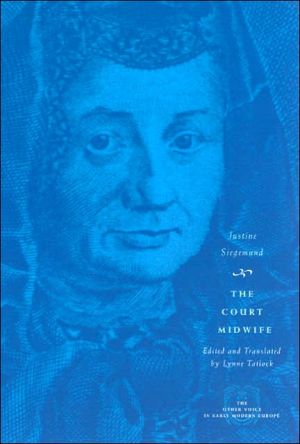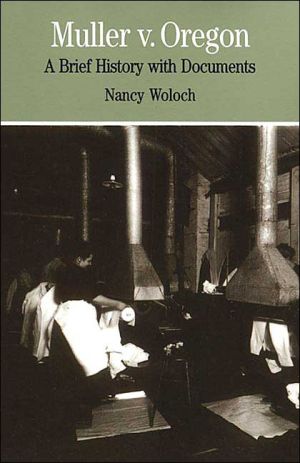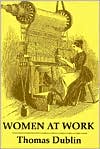The Court Midwife
First published in 1690, The Court Midwife made Justine Siegemund (1636-1705) the spokesperson for the art of midwifery at a time when most obstetrical texts were written by men. More than a technical manual, The Court Midwife contains descriptions of obstetric techniques of midwifery and its attendant social pressures. Siegemund's visibility as a writer, midwife, and proponent of an incipient professionalism accorded her a status virtually unknown to German women in the seventeenth century....
Search in google:
First published in 1690, The Court Midwife made Justine Siegemund (1636-1705) the spokesperson for the art of midwifery at a time when most obstetrical texts were written by men. More than a technical manual, The Court Midwife contains descriptions of obstetric techniques of midwifery and its attendant social pressures. Siegemund's visibility as a writer, midwife, and proponent of an incipient professionalism accorded her a status virtually unknown to German women in the seventeenth century. Translated here into English for the first time, The Court Midwife contains riveting birthing scenes, sworn testimonials by former patients, and a brief autobiography. Comitatus "[Tatlock] crafts an accessible --yet stylistically sensitive--translation of the seventeenth-century German original, and also convinces us . . . of the work's diverse significance to literary criticism, gender studies, scholarship on early modern literacy, book publication and education, as well as the history of western medicine. . . . Tatlock's work on this edition and translation . . . is worthy of Siegemund's own meticulous efforts."—Christine Thuau, Comitatus— Christine Thuau
\ THE COURT MIDWIFE\ \ By Justine Siegemund THE UNIVERSITY OF CHICAGO PRESS \ Copyright © 2005 \ The University of Chicago \ All right reserved.\ \ ISBN: 978-0-226-75709-4 \ \ \ Chapter One So God dealt well with the midwives. And because the midwives feared God he built them houses. -Ex 1: 20-211 \ That is, He blessed them in their profession and rewarded their loyalty.\ My most gracious Electress and Lady. To the Most High Princess and Lady, Lady Sophie Charlotte.\ Marquise and Electress of Brandenburg, in Prussia, of Magdeburg, Jülich, Cleves, Berg, Stettin, Pomerania, of the Kashubians and Wends, also in Silesia, of Crossen and Schwiebus, Duchess, born Duchess of Brunswick and Lüneburg, Baroness of Nuremberg, Princess of Halberstadt, Minden and Cammin, Countess of Hohenzollern, the Mark and Ravensberg, Lady of Ravenstein and the lands of Lauenburg and Bütow, etc., etc., etc.\ Most High Electress,\ Most Gracious Electress and Lady,\ Because the present book was written up under the protection and favor of the Electoral Sovereign Authority, I consider myself obliged to submit it first to your Electoral Highness and thus most humbly take the liberty of placing your great name in front of it as powerful protection with the request that your Electoral Highness most graciously deign to accept it and with the wish that your Electoral Highness may for a long time yet be a blessing upon the Electoral House and the entire land and may become a mother many times over. Your most humble servant wishes you this, your Electoral Highness, my most gracious Electress and Lady, from the bottom of her heart.\ Justina Siegmund [sic]\ To the most Illustrious Electress and Lady, Lady Anna Sophia\ Née Princess of Denmark, Norway, of the Wends and Goths, Electress and Duchess of Saxony, Jülich, Cleves and Berg, Schleswig, Holstein, Stormarn and Dithmarshes, Countess in Thuringia, Marquise of Meissen, also of the Upper and Lower Lausitz, Countess of Oldenburg and Delmenhorst. Etc., etc., etc.\ To my most gracious Electress and Lady. Most Illustrious Electress, Most Gracious Lady\ Because I have often had the privilege of serving my neighbor in your lands and at the seats of your courts and have experienced many a serious complication there and was often given cause to collect such things in a book and inasmuch as this book is now also favored with the privilege of the Electorate of Saxony, I believed myself most humbly obliged, before I made this book known in your lands, to present your Electoral Highness the first issue under your exalted Electoral Name that it may find all the more protection and be of still greater use. May your Electoral Highness graciously deign to accept it. May God continue to bless your Electoral Highness in body and in soul, hear your prayers and allow you to see the prosperity of your house and your children's children, peace unto Israel, for which thing your most humble servant, the undersigned Justina Siegmund [sic], prays daily to God on behalf of your Electoral Highness, my most gracious Electoral Highness and Lady.\ To the Most High Princess and Lady, Lady Mary\ Queen of Great Britain, France and Ireland, etc., etc.\ To my Most Gracious Queen, Most High Princess, Most Gracious Queen,\ I would not be so bold as to appear before Your Royal Majesty with this book, if your most gracious command to have this book printed were not still on my mind. So because Your Royal Majesty with your superior understanding judged back then that the work would serve the common weal, I wanted to bring this work to the common weal for its greater benefit under the noble name of Your Royal Highness. It is my most humble plea that Your Royal Majesty graciously deign to accept it, along with the book, with the addition of a heartfelt wish that God bless Your Royal Majesty and bless you with children in that great kingdom to the glory of His name and the good of the Church. With this wish I remain Your Royal Majesty's\ Most Humble Servant Justina Siegmund [sic]\ To the Most High Princess and Lady, Lady Amalia,\ Princess of Nassau Born Princess of Anhalt, Duchess of Saxony, Engern and Westfalia, Countess of Ascania, Katzenellenbogen, Vianden, Dietz and Spiegelberg, Lady of Beilstein, Zerbst and Bernburg etc. etc.\ To my most gracious Princess and Lady, Most High Princess, Gracious Princess and Lady,\ Your Highness is already familiar with this book, insofar as it recently found most gracious favor in your eyes, both when I was at The Hague and when I was in Lewarden, and you, along with Her Majesty, the reigning Queen of England, thought it useful to have it published and also recommended its publication through your venerable physicians-in-ordinary. Thus on account of my most humble obligation, I have made so bold as to attach Your Highness's name, along with that of Her Majesty the Queen of England, so as to enable this book entry into the lands where I am not known. May Your Highness thus deign graciously to accept this [dedication] and be assured that I will never fail most humbly to acknowledge the favor I have enjoyed from Your Highness and to pray for your noble prosperity. I am the most humble servant, of Your Highness, my most gracious Princess and Lady,\ Justina Siegmund [sic] Berlin, February 11, 1690\ To the Most High Princess and Lady, Lady Charlotte,\ Espoused Duchess of Schleswig, Holstein, Stormarn, and the Dithmarshes, born Duchess in Silesia, of Liegnitz, Brieg, and Wohlau, Countess of Oldenburg and Delmenhorst.\ To my most gracious Princess and Lady. Most High Duchess, Most Gracious Princess and Lady,\ The favor of having lived a long time under the gracious protection and care of not only Your Highness's venerable mother of blessed memory, but of also most humbly serving Your Highness and of thus being able to get farther in my profession, obliges me to everlasting gratitude, to which I would like to testify publicly by presenting this book under Your Highness's noble name, trusting that Your Highness will most graciously deign to permit it so this book will have all the more credibility with my countrymen. Because God so miraculously led me to this art and I served my fatherland first in it, I could think of no more proper way of introducing this book as a contribution to it than under your noble name. It is my most humble request that you most graciously accept this and my everlasting wish that God's grace constantly rule over you.\ The humble servant of your Highness, my most gracious Princess and Lady,\ Justina Siegmund [sic] February 11, 1690\ * * *\ By the grace of God, we, Johann Georg III, Duke of Saxony, Jülich, Cleves, and Berg, the Grand Marshall of the Holy Roman Emperor and Elector, Count in Thuringia, Marquis of Meissen, also of Upper and Lower Lausitz, Baron of Magdeburg, Princely Count of Henneberg, Count of the Mark, Ravensberg, and Barby, Lord of Ravenstein, etc., hereby make known that Justina Siegemund of Berlin most humbly gave us to understand that she intended to publish her treatise, entitled "The Midwife of the Electorate of Brandenburg" and furnished with copper engravings. Because she feared damage from pirated editions, she most obediently requested a privilege from us, which petition we now grant. Thus we intend that in the electoral territory of Saxony and the lands and dioceses incorporated therein no bookseller or printer shall within ten years of the date given below reprint this book, nor shall anyone, in case such reprints occur in other places, sell or market them on pain of loss of all reprinted copies and a fine of one hundred rhenish gold guilders for each pirated edition, half of which shall then go to our treasury, the other half of which shall fall to Siegemund. She, for her part, is obliged assiduously to correct the oft-mentioned book, to have it printed up most elegantly and to use good white paper for it as often as it is reprinted. She is obliged, at her own expense, to give to our Supreme Consistory eighteen copies of each printing and edition in advance of sale. Further, she shall not cede our privilege to anyone without our foreknowledge and permission. Thus we herewith command and order each and every one of our prelates, counts, lords, those from the knighthood and nobility, our responsible local government officials and magistrates, administrators, tax collectors, customs officials, city councilors, judges, wardens, village mayors, and all of our subjects and aliens enjoying a citizen's rights to protect and support said Siegemund with respect to our privilege for the ten years granted her as it concerns us. And should anyone violate it and should she petition the execution of it, we command the aforementioned to act upon it without delay, to collect the fine that has been set without delay, and to deliver up the pirated copies at the appropriate place. This constitutes our firm intention. We have documented and sealed this privilege with our electoral privy seal and signed it with our own hand.\ So done and granted in Dresden, June 17, 1689. Johann Georg Elector (L. S.) Hans Ernst Koch Theodorus Werner/S.\ * * *\ We, Leopold, elected Holy Roman Emperor, by the grace of God at all times the Augmenter of the Empire, in Germany, Hungary, Bohemia, Dalmatia, Croatia, and Slavonia, etc., King, Archduke of Austria, Duke of Burgundy, Styria, Carinthia, Carniola, and Würtemberg, and Count of Tyrolia, do with this letter publicly confess and make known to each and everyone that Justina Siegemund, sworn midwife to the court of the Electorate of Brandenburg, gave us to understand that she had written down her many observations and experiences of thirty years in difficult births and the turning of children in unnatural postures. Further, she made known that with the encouragement of a number of princely physicians-in-ordinary and doctors as well as other persons she had resolved to publish them at her own expense as experiences that had been found highly useful, along with requisite copper engravings that would be useful to women giving birth, under the title "The Court Midwife of the Electorate of Brandenburg, or a Highly Necessary Manual on Difficult and Unnatural Births." Inasmuch as this work necessitated great expenditure and it is to be feared that pirated editions would make it difficult in all kinds of ways for her to recover these expenses, she therefore most humbly called upon and asked us to grant our imperial Privilegium impressorium for a period of ten years to this treatise in quarto and by the power of it most graciously to deign to inhibit the worrisome damage caused by reprints. We graciously acknowledged the aforementioned right and proper request of the supplicant and thus granted her the favor and our imperial license and do this herewith by the power of this letter so that she may print the aforementioned treatise and reprint it, offer it for sale, and sell it, and so that no one can reprint, publish, or sell it without her consent and knowledge within a space of ten years, calculated from the date of this letter, within the Holy Roman Empire, as well as our hereditary kingdoms, principalities, and lands, neither in quarto nor in another format, nor with or without copper engravings or woodcuts. And we thus command each and every one of our and the empire's subjects, as well as the subjects and vassals of our hereditary kingdoms, principalities, and lands, especially, however, all printers, book peddlers, bookbinders, and book sellers, if they are to avoid a fine of a full three marks worth of gold, which each person, each time he transgresses our decree, will be subject to paying without fail-half of it into our imperial treasury and the other half to the aforementioned supplicant Justina Siegemund. We do herewith fervently command and desire that you not-and no one on your behalf-reprint, distribute, offer for sale, peddle, or sell the aforementioned treatise on difficult and unnatural births within the designated ten years, neither in quarto nor other formats, nor with or without copper engravings or woodcuts, and that you in no wise abet others in reprinting, distributing, marketing, peddling or selling it. To avoid our imperial disfavor and the loss of that same favor for your printing, we command you to stand by the aforementioned Justina Siegemund with the help and cooperation of the pertinent authority of the area whenever you shall discover such things and immediately on your own authority without obstruction to confiscate everything and thus to act on her behalf. However, the oft-mentioned Justina Siegemund shall be obliged, at the risk of the loss of our Imperial License, to deliver at her own expense the customary copies of said treatise to our Imperial Court Chancery and to have printed and include this Impressorium in it to inform and warn others. In witness thereof this letter is sealed with our imperial privy seal. Granted in our city, Vienna, on the fifth of May, in the year 1689, of our reign, in the thirty-first year of the Roman Empire, in the thirty-fourth year of the Kingdom of Hungary, and in the thirty-third year of the Kingdom of Bohemia.\ Leopold (L. S.) Vt. Sebastian Wunibaldt, Hereditary Lord High Steward, Count of Zeyhl: Ad Mandatum Sac. Caes. Majestatis proprium. Frantz Wilderich von Menshengen.\ * * *\ We, Frederick III, by the grace of God, Margrave of Brandenburg, the Lord High Chamberlain of the Holy Roman Empire and Elector in Prussia, Duke of Magdeburg, Jülich, Cleves, Berg, Stettin, Pomerania, of the Kashubians and Wends, also in Silesia, of Crossen and Schwiebus, Baron of Nuremberg, Prince of Halberstadt, Minden, and Cammin, Count of Hohenzollern, the Mark, and Ravensberg, Lord of Ravenstein and the lands Lauenburg and Bütow, etc. We hereby proclaim for ourselves, our heirs and descendants, margraves and electors in Brandenburg, etc., as well as to each and every person that our dear retainer Justina Sigismund [sic] humbly gave us to understand that she intended to publish a treatise that she had written under the name of the Court Midwife of the Electorate of Brandenburg. This treatise had been approved not only by the medical faculty of our University at Frankfurt on the Oder, but also by various Dutch physicians and doctors. She most obediently requested that we deign to grant her a privilege so that she would not be subject to any damage, detriment, or inconvenience by pirated editions or the sale thereof in our lands. Not only has the supplicant recorded various proofs of her dexterity and adroitness, but the medical faculty of our aforementioned university at Frankfurt on the Oder is of the opinion, according to the attestation provided, that the treatise will serve the public weal. Thus we hesitate all the less to grant the aforementioned petition. In our capacity as Elector and Sovereign, we do hereby privilege and favor said Justina Sigismund [sic], mentioned at the outset, as follows: that within the Electorate and Mark of Brandenburg, in the lands incorporated therein, and in our lands and provinces the aforementioned treatise cannot be reprinted for twenty years or imported, or distributed, sold neither secretly nor openly, nor sold off cheaply, nor should it be reprinted outside of our territory. Rather, by the power invested in the authority and the crown by virtue of this, our open letter, they, one and all, shall hereby be forbidden in every case as follows: the copies shall be confiscated, and they shall be fined 500 thalers, half of which shall be paid to our treasury and the other half to the petitioner, along with the copies. We and our descendants, Margraves and Electors of Brandenburg, etc., thus desire graciously to protect and preserve the oft-mentioned Justina Sigismund [sic] for that period of twenty years. Thus we graciously exhort all our governments in our electorate, our duchies, earldoms, and baronial lands to do this in our stead and to enforce our privilege appropriately and to punish those who act contrary to it as mentioned above. The petitioner shall, however, also be obliged to deliver at her own expense four copies of this treatise to our library as soon as it appears. Faithfully and without malice: Nevertheless, Us for Ours and all others according to their rights without prejudice. Documented with a signature by our own hand and an attached electoral feudal seal, granted at Cölln on the Spree, April 22, after the birth of our Lord and Redeemer, in the year 1689.\ Frederick (L. S.) Eberhard Danckelmann\ (Continues...)\ \ \ \ \ Excerpted from THE COURT MIDWIFE by Justine Siegemund Copyright © 2005 by The University of Chicago. Excerpted by permission.\ All rights reserved. No part of this excerpt may be reproduced or reprinted without permission in writing from the publisher.\ Excerpts are provided by Dial-A-Book Inc. solely for the personal use of visitors to this web site.\
Acknowledgments Series Editors' Introduction Volume Editor's Introduction Volume Editor's Bibliography The Court Midwife of the Electorate of Brandenburg Dedicatory Letters Authorizations Author's Introduction Part 1 Part 2 Appendix A: Original Table of Contents Appendix B: Glossary of New and Old Gynecological and Obstetric Terms Series Editors' Bibliography Index
\ Sixteenth-Century JournalTatlock's thorough introduction places this text and midwifery in Germany in their cultural and historical contexts. . . . The bibliography . . . provides a treasure trove of sources for anyone wishing to investigate the subject further.\ — Mara R. Wade\ \ \ \ \ \ Comitatus\ - Christine Thuau\ "[Tatlock] crafts an accessible --yet stylistically sensitive--translation of the seventeenth-century German original, and also convinces us . . . of the work's diverse significance to literary criticism, gender studies, scholarship on early modern literacy, book publication and education, as well as the history of western medicine. . . . Tatlock's work on this edition and translation . . . is worthy of Siegemund's own meticulous efforts."\ \ \ Journal of Midwifery & Women's Health\ - Donna Harvel Balo\ "A fascinating glimpse into the history and life and times of women and birth."\ \ \ \ \ Renaissance Quarterly\ - Alison Klairmont-Lingo\ “A welcome addition to the University of Chicago Press’s series The Other Voice. That a work on childbirth authored by a women about her own craft appears in the series epitomizes how profoundly women authors, and especially female medical authors, violated gender and professional boundaries. . . . Tatlock has made a valuable contribution to the history of medicine, mid-wifery, and the body by smoothly translating and editing this important work. Her introduction, notes, and glossary help greatly to put the text into its historical contexts.”\ \ \ \ \ H-Net Book Review\ - Almut Spalding\ "This fascinating book makes available in English the work of a seventeenth-century midwife who became famous for her skills in handling difficult births. . . . The Court Midwife represents not only an illustrated textbook for seventeenth-century midwives, but . . . also provides a social commentary on the time. Lynne Tatlock's careful translation and edition of the text offer vivid insights into early modern medical and obstetric technology and care, social networks, women's lives, communal health care systems, educational institutions, the profession of midwifery, its legal implications and more."\ \ \ \ \ Clio\ - Mary Lindemann\ "Offer[s] much to the scholar and the student of early modern history and not just to those interested in Germany, women . . . or medicine."\ \ \ \ \ Nursing History Review\ - Karol K. Weaver\ "Tatlock's rendition of Siegemund's book will be embraced eagerly by medical and lay readers. . . . Siegemund's text has drama, joy, and even a bitter dispute between a skilled midwife and a jealous and conniving doctor. . . . Sections of the text can be incorporated into an array of classroom settings including courses on women and medicine, women's literature, the history of medicine, and the history of nursing."\ \ \ \ \ Sixteenth Century Journal\ - Mara R. Wade\ "Tatlock's thorough introduction places this text and midwifery in Germany in their cultural and historical contexts. . . . The bibliography . . . provides a treasure trove of sources for anyone wishing to investigate the subject further."\ \ \ \ \ Comitatus[Tatlock] crafts an accessible —yet stylistically sensitive—translation of the seventeenth-century German original, and also convinces us . . . of the work's diverse significance to literary criticism, gender studies, scholarship on early modern literacy, book publication and education, as well as the history of western medicine. . . . Tatlock's work on this edition and translation . . . is worthy of Siegemund's own meticulous efforts.\ — Christine Thuau\ \ \ \ \ \ Journal of Midwifery & Women's HealthA fascinating glimpse into the history and life and times of women and birth.\ — Donna Harvel Balo\ \ \ \ \ \ Renaissance QuarterlyA welcome addition to the University of Chicago Press’s series The Other Voice. That a work on childbirth authored by a women about her own craft appears in the series epitomizes how profoundly women authors, and especially female medical authors, violated gender and professional boundaries. . . . Tatlock has made a valuable contribution to the history of medicine, mid-wifery, and the body by smoothly translating and editing this important work. Her introduction, notes, and glossary help greatly to put the text into its historical contexts.”\ — Alison Klairmont-Lingo\ \ \ \ \ \ H-Net Book ReviewThis fascinating book makes available in English the work of a seventeenth-century midwife who became famous for her skills in handling difficult births. . . . The Court Midwife represents not only an illustrated textbook for seventeenth-century midwives, but . . . also provides a social commentary on the time. Lynne Tatlock's careful translation and edition of the text offer vivid insights into early modern medical and obstetric technology and care, social networks, women's lives, communal health care systems, educational institutions, the profession of midwifery, its legal implications and more.\ — Almut Spalding\ \ \ \ \ \ ClioOffer[s] much to the scholar and the student of early modern history and not just to those interested in Germany, women . . . or medicine.\ — Mary Lindemann\ \ \ \ \ \ Nursing History ReviewTatlock's rendition of Siegemund's book will be embraced eagerly by medical and lay readers. . . . Siegemund's text has drama, joy, and even a bitter dispute between a skilled midwife and a jealous and conniving doctor. . . . Sections of the text can be incorporated into an array of classroom settings including courses on women and medicine, women's literature, the history of medicine, and the history of nursing.\ — Karol K. Weaver\ \ \ \ \ \ Sixteenth Century Journal"Tatlock's thorough introduction places this text and midwifery in Germany in their cultural and historical contexts. . . . The bibliography . . . provides a treasure trove of sources for anyone wishing to investigate the subject further."\ — Mara R. Wade\ \ \








